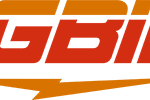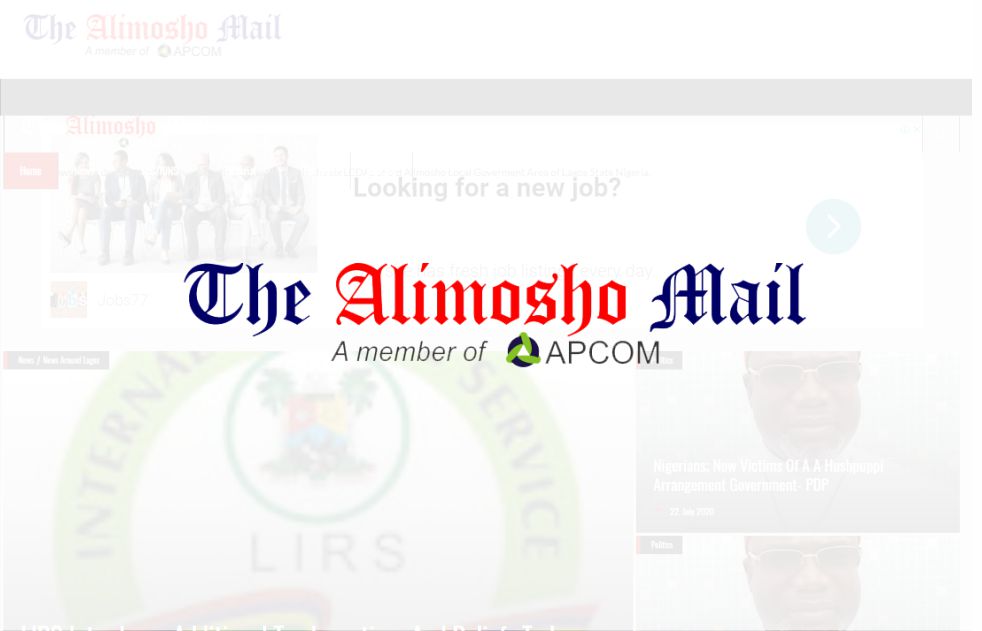Labour party Lagos state has made public its proposed education policy aimed at repositioning the educational standards in the the state.
The policy which is published on its official website takes into consideration of all levels of education.
Read in details:
Introduction
The education policy proposed by the Labour Party Lagos aims to provide a comprehensive framework for the development and improvement of the education system in Lagos. It recognizes the importance of quality education in fostering social mobility, economic growth, and sustainable development. The policy focuses on several key areas, including access to education, curriculum development, teacher training, infrastructure improvement, and educational technology integration.
Current Challenges Of Lagos Education
Overcrowded Classrooms and Inadequate Infrastructure: Most schools in Lagos suffer from limited physical infrastructure, including classrooms, libraries, laboratories, and sanitation amenities. Similarly, state-owned tertiary institutions in Lagos encounter significant infrastructure challenges, including outdated facilities, insufficient classrooms, overcrowded lecture halls, and inadequate laboratories. These issues significantly hamper the quality of teaching, learning, and research activities, thereby impeding overall educational progress.
Insufficient Teacher Training and Curriculum Relevance: Inadequate training and professional development opportunities for teachers contribute to outdated teaching methods and limited subject expertise. Additionally, the existing curriculum may not align effectively with the demands of the modern workforce and technological advancements. There is a need to regularly review and update the curriculum to ensure its relevance and equip students with the necessary skills for the job market.
High Dropout Rates and Inequitable Access: Lagos experiences high dropout rates, particularly among disadvantaged students, due to factors such as poverty, lack of access to educational resources, and the need for child labor. Moreover, there is a significant disparity in access to quality education across different regions, with rural areas and low-income communities facing limited access to schools, trained teachers, and educational resources.
Limited Integration of Technology and Digital Literacy: Many schools in Lagos face challenges in effectively integrating technology into classrooms, primarily due to insufficient access to technology infrastructure and a lack of digital literacy skills among both teachers and students. This hinders the leveraging of technology to enhance teaching and learning experiences.
Inadequate Funding and Limited Research Opportunities: The education sector in Lagos often faces budgetary constraints, resulting in inadequate funding for infrastructure development, teacher training, and educational resources. State-owned universities and polytechnics in Lagos struggle with financial challenges, which impact infrastructure, research opportunities, and the availability of modern teaching resources.
Limited Collaboration and Stakeholder Engagement: Greater collaboration and engagement among the government, private sector, communities, and civil society organizations are necessary to effectively address the challenges in the education system. Improved stakeholder participation can lead to better resource mobilization and the implementation of innovative solutions.
Faculty Recruitment and Retention, and Industry Linkages: State-owned universities and polytechnics may face difficulties in attracting and retaining qualified faculty members due to budget constraints and the allure of better opportunities elsewhere. Limited collaboration and partnerships with industries create a gap between academia and industry, making it challenging for graduates to transition from education to employment.
Accreditation and Quality Assurance: Some state-owned tertiary institutions in Lagos may encounter accreditation issues or struggle to maintain and assure the quality of their programs. Ensuring effective quality assurance mechanisms and adherence to accreditation standards is crucial to safeguarding the value and recognition of degrees and diplomas.
Our Solution
Addressing these challenges in state-owned universities, polytechnics, and the broader education system necessitates a unified and holistic approach. The Labour Party Lagos recognizes the significance of bolstering tertiary education in the state and commits to increasing investment in infrastructure, research funding, faculty development, curriculum reform, and industry collaborations. By ensuring adequate funding, improving infrastructure, enhancing curriculum relevance, and fostering partnerships with industries, the party aims to cultivate a high-quality and globally competitive tertiary education system.
The Labour Party Lagos understands that tackling these challenges requires a comprehensive and well-coordinated strategy. This approach entails prioritizing infrastructure development, teacher training, curriculum reform, equitable access, technology integration, increased funding, and collaborative efforts among all stakeholders. Through the following education policy, the party seeks to address these challenges and establish a conducive and inclusive education system that empowers all students and equips them for a successful future.
Education Policy Framework For Universal Basic Education
Universale Basic Education Policy Objectives
Access To Education
Universal Basic Education: Prioritize the implementation of free and compulsory basic education for all children in Lagos, ensuring quality education is accessible to every child.
School Feeding Program: Establish a sustainable school feeding program to improve attendance rates and enhance student nutrition, particularly in disadvantaged areas.
Scholarships and Grants: Introduce scholarships and grants for academically gifted students from low-income families, encouraging their enrollment in higher education institutions.
Curriculum Development
Review and Update: Conduct a comprehensive review of the curriculum to ensure its relevance to the needs of the 21st-century workforce, focusing on critical thinking, problem-solving, creativity, and digital literacy.
Vocational Education: Promote the integration of vocational and technical education into the curriculum, equipping students with practical skills and increasing their employability.
Entrepreneurship Education: Introduce entrepreneurship education at all levels to foster an entrepreneurial mindset, innovation, and job creation among students.
Teacher Training And Professional Development
Continuous Professional Development: Invest in continuous professional development programs for teachers, providing opportunities to enhance their pedagogical skills, subject knowledge, and proficiency in educational technology.
Recruitment and Retention: Improve teacher recruitment processes, incentivize teaching careers, and provide better working conditions to attract and retain high-quality educators.
Teacher Evaluation: Implement a robust teacher evaluation system to ensure accountability and maintain teaching standards.
Infrastructure Improvement
School Construction and Renovation: Prioritize the construction and renovation of school buildings to accommodate the increasing student population and improve the learning environment.
Technology Infrastructure: Invest in adequate technology infrastructure in schools, including computer labs, internet connectivity, and digital learning resources, to promote technology-enabled education.
Educational Technology Integration
Digital Learning Resources: Develop and provide digital learning resources, including educational software, online libraries, and interactive learning platforms, to enhance student engagement and learning outcomes.
E-Learning Platforms: Establish e-learning platforms offering online courses, tutorials, and support materials to supplement classroom teaching and ensure access to education during emergencies or disruptions.
Technology Skills Training: Introduce comprehensive training programs to equip students, teachers, and administrators with essential technology skills required for the digital age.
Collaboration And Stakeholder Engagement
Public-Private Partnerships: Foster collaboration between the government, private sector, and civil society organizations to mobilize resources, expertise, and innovative approaches in improving education.
Parental and Community Involvement: Encourage active involvement of parents and communities in the education system through parent-teacher associations, community engagement programs, and regular feedback mechanisms.
Monitoring And Evaluation
Data-Driven Decision Making: Establish a robust data collection and analysis system to monitor educational progress, identify gaps, and inform evidence-based policy-making.
Independent Quality Assurance: Establish an independent body responsible for monitoring and evaluating the quality of education delivery, ensuring compliance with standards, and conducting periodic assessments.
Education Policy Framework For Tertiary Education
Policy Objectives
Increased Funding
Advocate for increased budgetary allocation to state-owned tertiary institutions, ensuring sufficient funding for infrastructure development, research initiatives, and faculty recruitment.
Explore alternative sources of funding, such as public-private partnerships, endowments, and grants, to provide additional financial support.
Curriculum Reform And Industry Alignment
Establish a regular review process to update the curriculum, ensuring alignment with industry demands and technological advancements.
Foster collaboration between institutions and industries to develop internship programs, industrial attachments, and joint research projects, facilitating the transfer of knowledge and skills.
Infrastructure Development
Prioritize infrastructure development, including classrooms, laboratories, libraries, and research facilities.
Seek partnerships with government agencies, private organizations, and international donors to secure funds for infrastructure projects.
Faculty Recruitment And Development
Develop competitive remuneration packages to attract and retain qualified faculty members.
Provide opportunities for faculty professional development, research grants, and sabbatical leaves to enhance their expertise and teaching quality.
Research And Development
Allocate dedicated funding for research and development activities.
Encourage collaboration between institutions and industries to address local challenges and promote innovation.
Establish research centers and institutes within the institutions to facilitate interdisciplinary research and knowledge exchange.
Strengthening Accreditation And Quality Assurance
Establish an independent accreditation and quality assurance body to ensure adherence to national and international standards.
Regularly assess and monitor institutions’ compliance with quality benchmarks and provide support for improvement.
Industry Partnerships
Strengthen ties between state-owned institutions and industries through partnerships, advisory boards, and joint initiatives.
Engage industries in curriculum development, internships, guest lectures, and mentorship programs to enhance students’ employability.
Collaboration Among Institutions
Promote collaboration and knowledge sharing among state-owned tertiary institutions through consortiums, research networks, and joint academic programs.
Facilitate the exchange of best practices and resources among institutions to enhance overall educational quality.
Student Support And Welfare
Improve student support services, including counseling, career guidance, and financial aid programs.
Enhance student welfare by providing safe and conducive learning environments, accommodation facilities, and recreational amenities.
Student Loan Programs
Introduce student loan programs to provide financial assistance to deserving and qualified students who may not have the means to afford tertiary education.
Collaborate with financial institutions, government agencies, and private organizations to establish favorable loan terms, including low-interest rates and flexible repayment options.
Create a transparent and efficient application and disbursement process, ensuring accessibility and equal opportunities for students from diverse backgrounds.
Implementing a student loan program can help address the financial barriers that prevent some students from accessing higher education. It provides them with the means to pursue their studies and alleviates the burden of upfront tuition fees. By including student loan programs in the education policy, the Labour Party Lagos aims to promote equitable access to tertiary education and empower students to achieve their educational aspirations.
By implementing these solutions, the Labour Party Lagos aims to address the challenges faced by state-owned universities and polytechnics in Lagos, ensuring access to quality education, research excellence, and industry relevance.
Conclusion
The proposed education policy by the Labour Party Lagos is aimed at improving access to quality education, enhancing curriculum development, empowering teachers, upgrading infrastructure, integrating educational technology, fostering collaboration, ensuring access to quality education, research excellence, and industry relevance, and ensuring effective monitoring and evaluation. By implementing this comprehensive education policy, the Labour Party Lagos aims to create a conducive and inclusive learning environment that prepares students for the challenges of the future, empowers them with the necessary skills and knowledge, and enables them to contribute meaningfully to society and the economy.
It is essential to recognize that education is a long-term investment and requires consistent commitment and allocation of resources. The Labour Party Lagos is committed to working collaboratively with all stakeholders to implement and refine this education policy, ensuring that it is responsive to the evolving needs of students, teachers, and the community.
By prioritizing education as a fundamental right and a catalyst for social and economic progress, the Labour Party Lagos seeks to build a prosperous and inclusive Lagos where every child has an equal opportunity to thrive and succeed. Through this education policy, we envision a future where education becomes a transformative force, unlocking the full potential of individuals and fostering a knowledge-driven society.
The Labour Party Lagos is dedicated to promoting an education system that instills values of equity, excellence, creativity, and critical thinking, enabling individuals to become responsible citizens and leaders in their respective fields. By investing in education today, we lay the foundation for a brighter and more prosperous future for Lagos and its people.
Gulled from wwww.labourpartylagos/education










